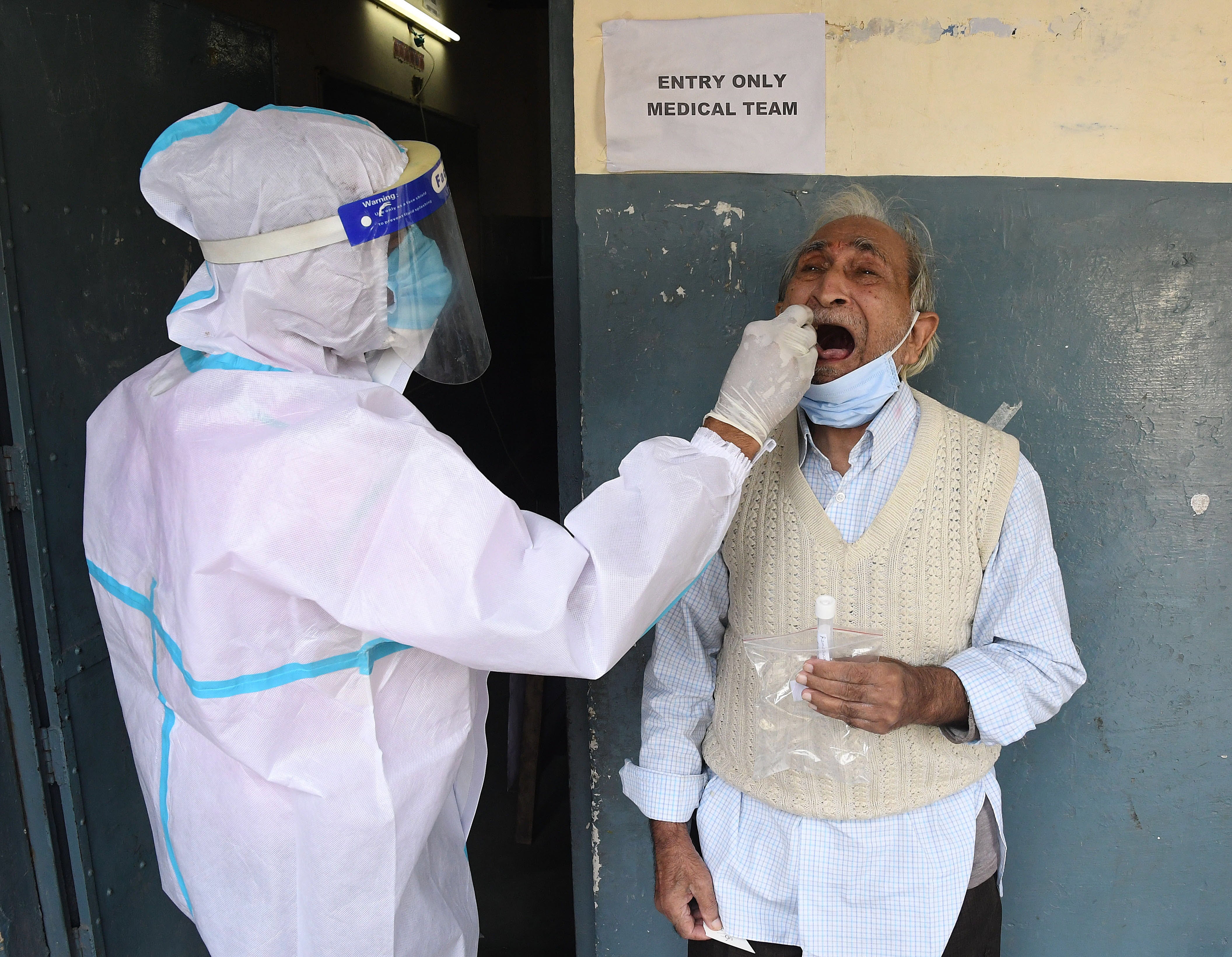Delhi considers return of some lockdown measures as Covid cases in Indian capital soar
Among ‘mini-lockdown’ measures being considered are a limit of 50 guests at marriage functions, down from 200 currently

Your support helps us to tell the story
From reproductive rights to climate change to Big Tech, The Independent is on the ground when the story is developing. Whether it's investigating the financials of Elon Musk's pro-Trump PAC or producing our latest documentary, 'The A Word', which shines a light on the American women fighting for reproductive rights, we know how important it is to parse out the facts from the messaging.
At such a critical moment in US history, we need reporters on the ground. Your donation allows us to keep sending journalists to speak to both sides of the story.
The Independent is trusted by Americans across the entire political spectrum. And unlike many other quality news outlets, we choose not to lock Americans out of our reporting and analysis with paywalls. We believe quality journalism should be available to everyone, paid for by those who can afford it.
Your support makes all the difference.With coronavirus cases rapidly increasing in Delhi, the Indian capital is considering a return to lockdown measures in some parts of the city that could become hotspots for infection.
Delhi’s chief minister Arvind Kejriwal said on Tuesday that officials were concerned by scenes witnessed during the Diwali festival season, when people in many markets were “neither wearing masks nor practising social distancing”.
“Now that Diwali is over we expect markets to be less crowded," he said. "But if we see measures like wearing masks and social distancing are not followed in certain markets that can become corona[virus] hotspots, we are seeking permission from the central government to allow us to announce lockdown in those areas for a few days,” said Mr Kejirwal in a video message posted on Twitter.
He also thanked the federal government, led by the rival BJP party of Narendra Modi, in helping address the shortage of ICU beds in the national capital, as hospitals have been swamped by a rapid increase in case numbers over the past couple of weeks.
Stricter measures in the capital could also include a tighter limit on guest numbers at marriage functions, from 200 down to 50 – a reversal of a relaxation made just a few weeks ago. Mr Kejriwal said the devolved Delhi government had sent an order along these lines to the city’s Lt Governor for final approval.
Since the start of the pandemic, Delhi has recorded over 489,000 cases including 7,713 deaths. The active number of cases in the city, according to government figures from Monday, is 40,128.
Though the Delhi government led by Mr Kejriwal’s Aam Aadmi Party (AAP) claims hospital beds are still available in the capital, the BJP has claimed resources are being mismanaged and there is not a single bed left in private hospital ICU wards.
Virendra Sachdeva, vice president for the BJP in Delhi, told The Independent that “the reality of the city’s poor health infrastructure and poor management has been exposed by the pandemic.”
“As the numbers of coronavirus cases increased, the government decreased the testing to show fewer cases and hide their failures," he said. “The Delhi government has failed in ensuring that people wear masks and follow social distancing. Finally, the central government is getting involved on Delhi government’s request to take control of the situation.”
It isn’t just hospitals managed privately or by the Delhi government that are feeling the strain, however. Dr Jugal Kishore from Safdarjung Hospital, the largest healthy facility managed by the central government in the capital, said the need to create large separate zones for Covid-19 patients had badly impacted routine work.
He told The Independent that while case numbers had dipped between an earlier peak in June and now, problems seen earlier in the summer had not really been addressed.
“In summers, the working conditions were challenging due to heat and lack of air conditioning but that has improved now. There were no long working hours for the health workers, including doctors, but there is definitely a fear of the infection because of which many resident doctors and interns stayed away," Dr Kishore said.
“This created a shortage of doctors in summers, and this crisis still continues as many prefer to not come to the hospital due to fear – the psychological barrier.”




Join our commenting forum
Join thought-provoking conversations, follow other Independent readers and see their replies
0Comments